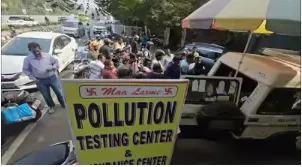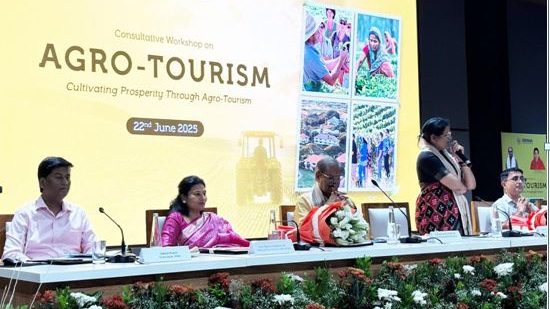

Bhubaneswar, June 22: In a major step toward integrating agriculture with tourism and redefining rural livelihoods, the Department of Tourism, in collaboration with the Department of Agriculture & Farmers' Empowerment organized a high-impact workshop on agro-tourism today.
The event brought together a dynamic mix of agro-landowners, progressive farmers, policymakers, and domain experts to explore the transformative potential of agro-tourism in driving rural economic growth.
The workshop was co-chaired by Deputy Chief Minister and Minister of Tourism, Pravati Parida, and Deputy Chief Minister and Minister for Agriculture & Farmers' Empowerment, Kanak Vardhan Singh Deo. Their joint presence underscored the state government’s integrated and forward-looking approach to rural development.
Both leaders emphasized the opportunities that lie in blending agriculture with tourism to create sustainable business models, foster rural pride, and enable supplementary income generation across Odisha. They reaffirmed the state’s commitment to empowering farmers and agro-landowners through structured support, policy alignment, and on-ground execution of agro-tourism initiatives.
A key highlight of the workshop was Odisha’s Vision 2036 roadmap, under which 15 priority destinations have been earmarked for integrated rural and tourism development. The Department of Tourism is actively promoting Agro-Tourism Units that will offer curated rural experiences—such as farm stays, traditional cuisine, handicrafts, nature walks, and hands-on farming activities.
These initiatives aim to open new income streams for agro-landowners, self-help groups (SHGs), and rural communities while fostering inclusive and sustainable development.
Officials outlined strategies to incorporate agro-tourism into Odisha’s broader tourism network. Additionally, experts from Maharashtra and other leading states presented successful case studies, showcasing practical models of community-led rural tourism.
Discussions focused on investment opportunities, enhancing digital visibility, and support through schemes like the Mukhyamantri Krushi Udyog Yojana (MKUY), which offers capital subsidies, training programs, and employment-linked incentives to agro-tourism entrepreneurs.
Odisha is shaping a sustainable, community-driven agro-tourism model that places farmers and rural communities at the center of tourism innovation. The workshop served as a vital platform to equip agro-landowners and farmers to transform their farms into immersive tourism destinations—blending leisure, learning, and livelihood.
Special emphasis was placed on empowering women, SHGs, and rural youth as drivers of tourism entrepreneurship. The initiative aims to connect with Odisha’s hinterlands, celebrate local cultures, and promote inclusive economic growth rooted in the state’s agrarian strengths.
Senior officials reaffirmed their commitment to promoting sustainable tourism that uplifts local economies and preserves cultural heritage. Agro-tourism, they noted, will play a vital role in diversifying Odisha’s tourism offerings while reinforcing rural pride.
The workshop featured valuable insights from two of India’s most respected voices in sustainable tourism-Pandurang Taware and Jayram HR.
Shri Taware—widely recognized as a pioneer of agro-tourism in India—shared his grassroots experiences from Maharashtra, illustrating how agriculture can be turned into a vibrant tourism enterprise that generates sustainable income and safeguards local traditions.
Jayram HR contributed perspectives on responsible and community-driven tourism, spotlighting successful models that emphasize ecological balance, capacity building, and deep visitor engagement.
Their presentations offered a practical and inspiring roadmap for stakeholders in Odisha to envision a future where agriculture and tourism converge to benefit local communities.